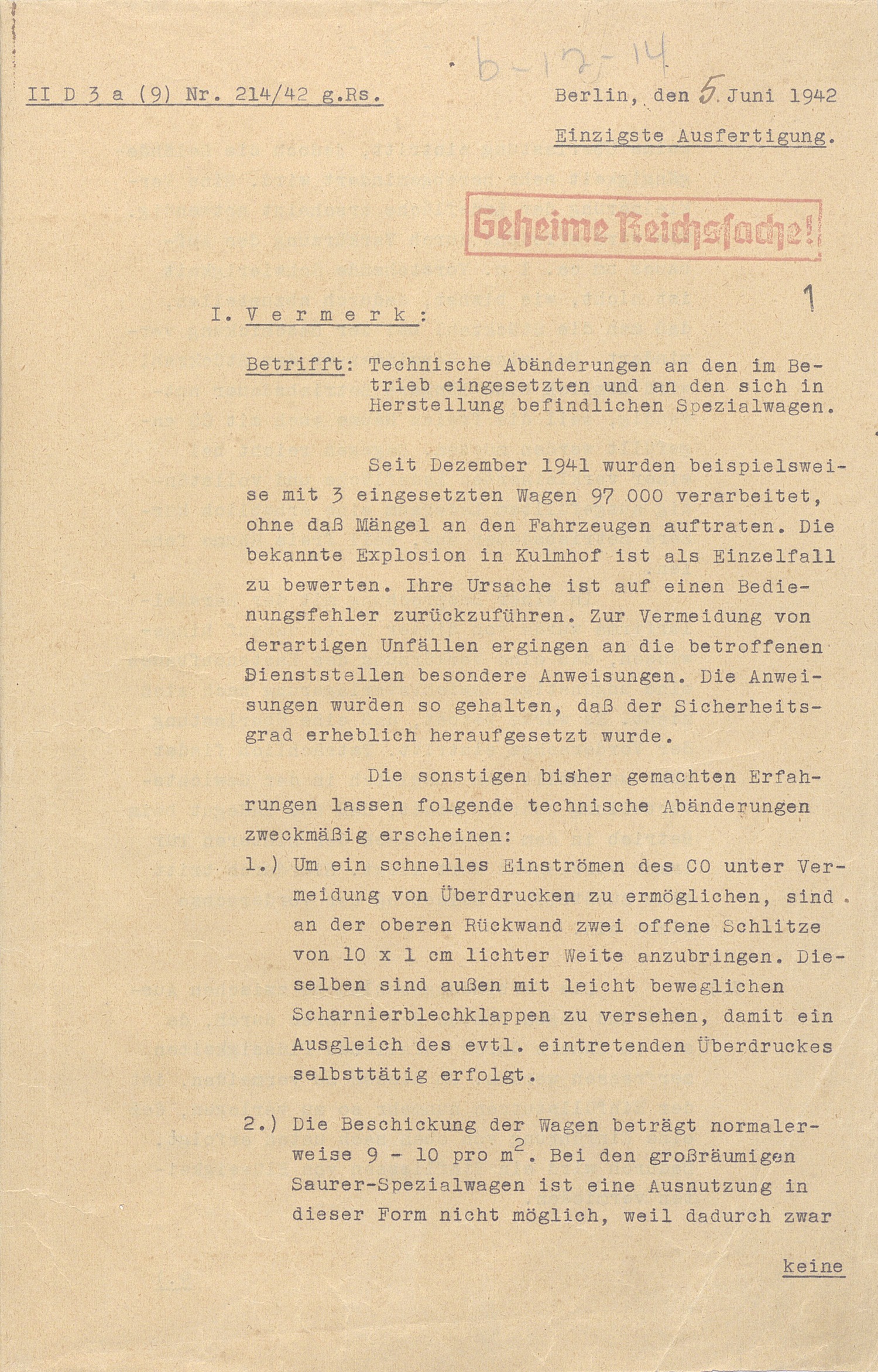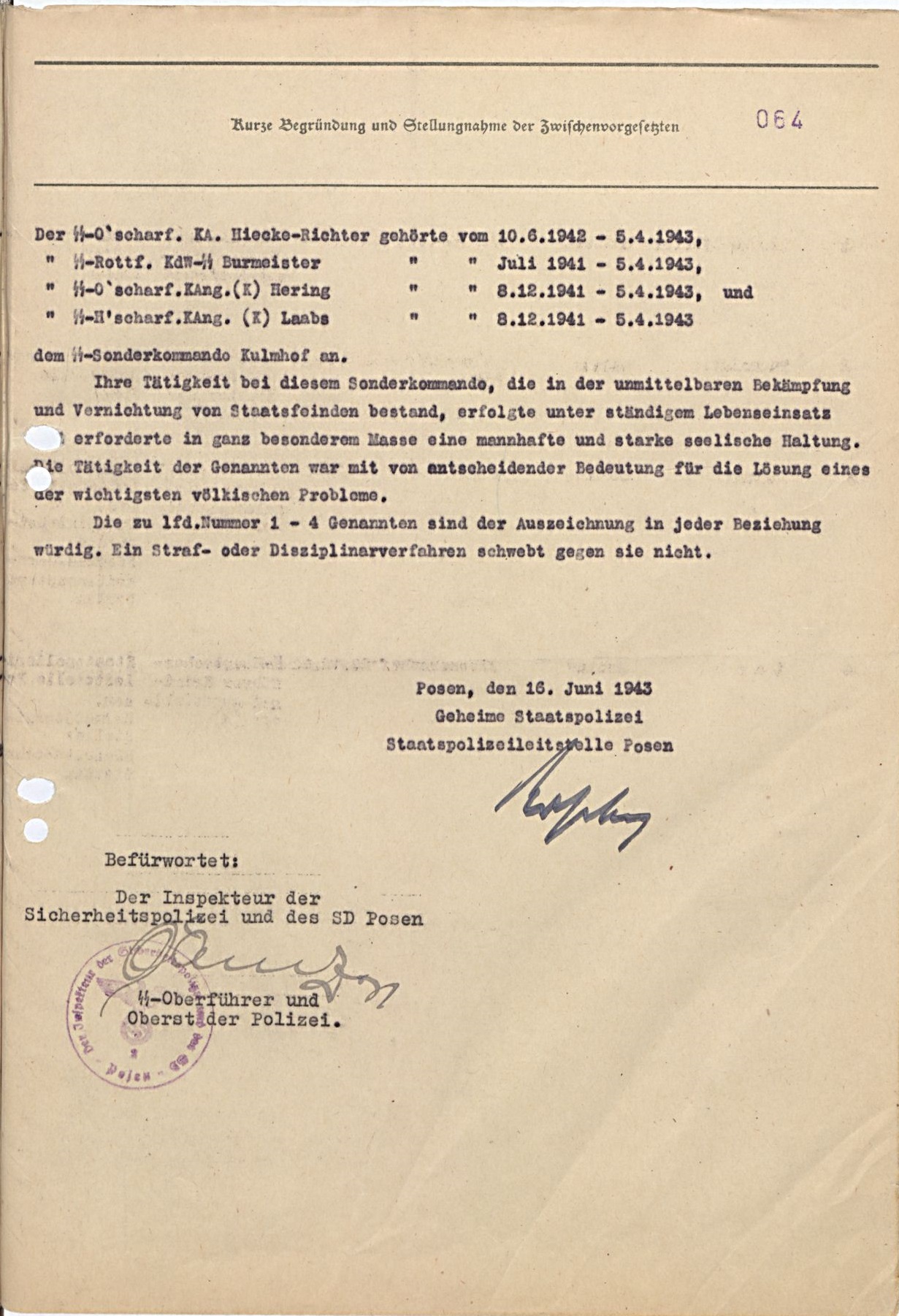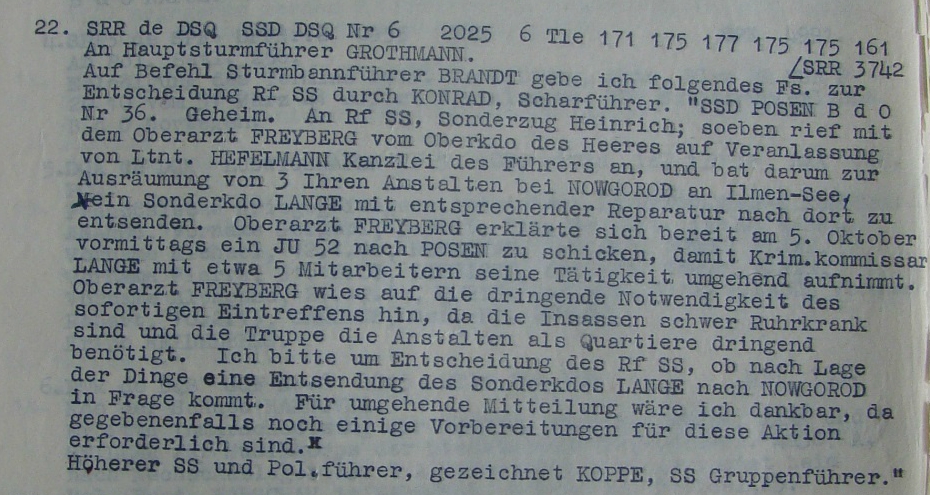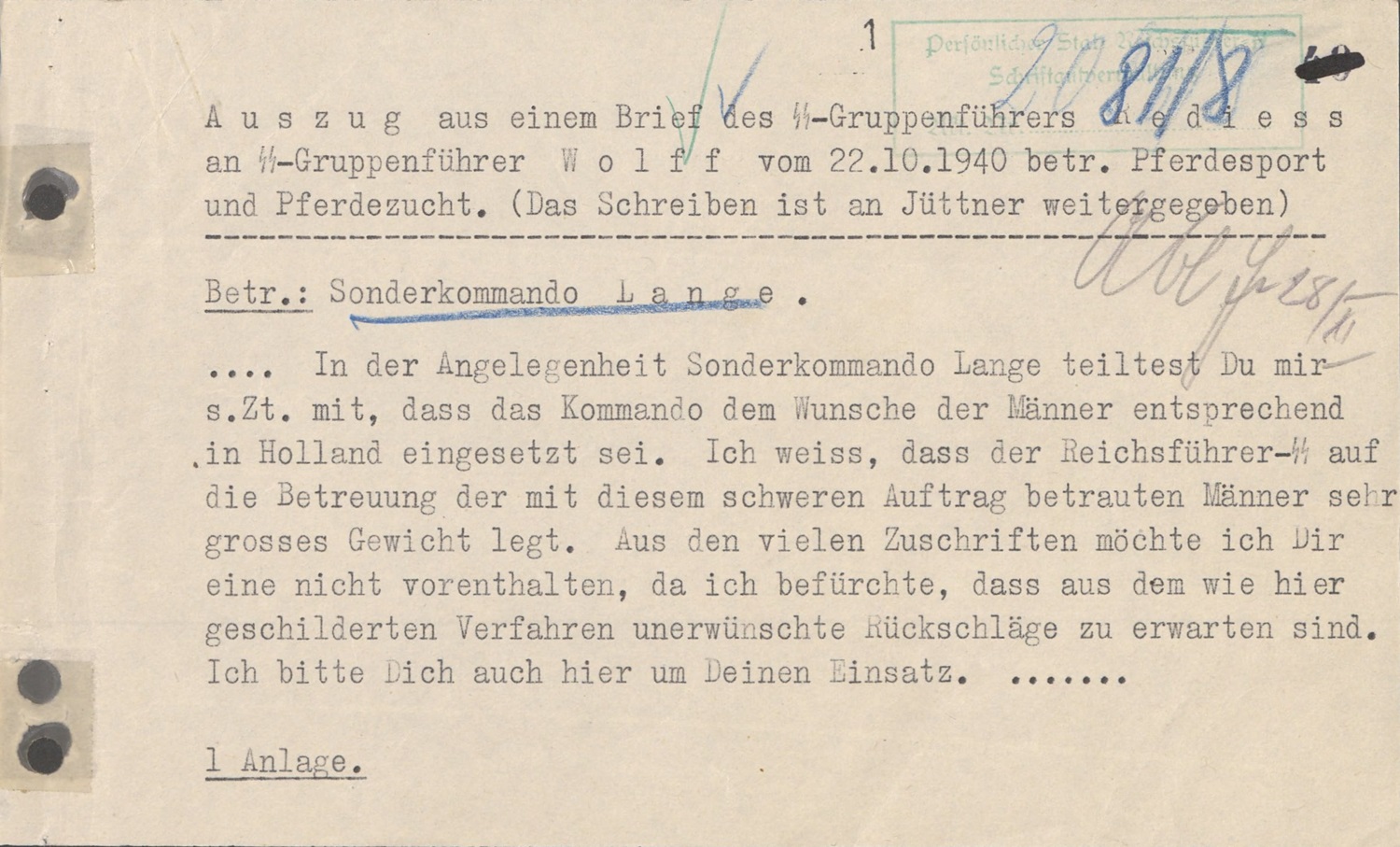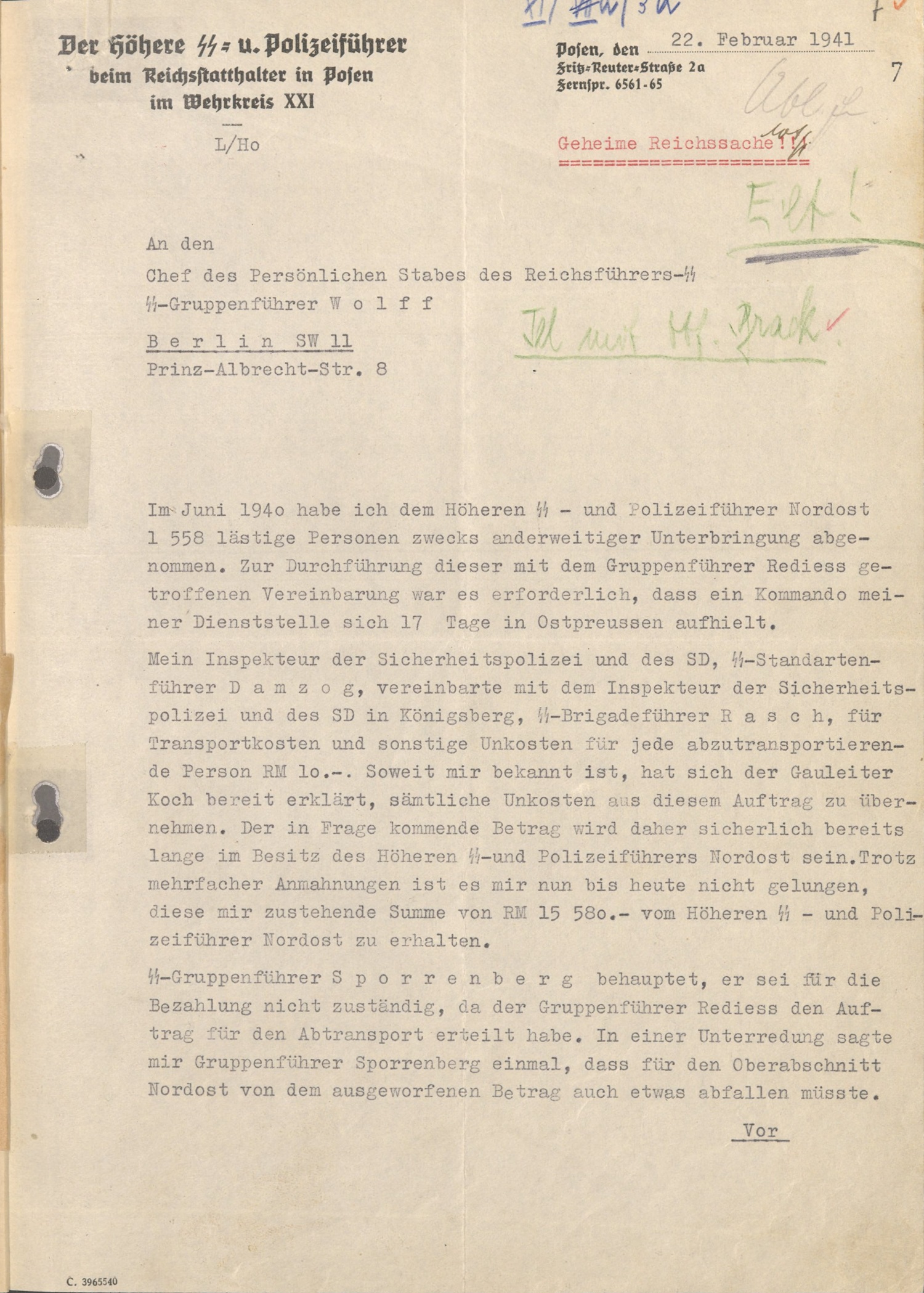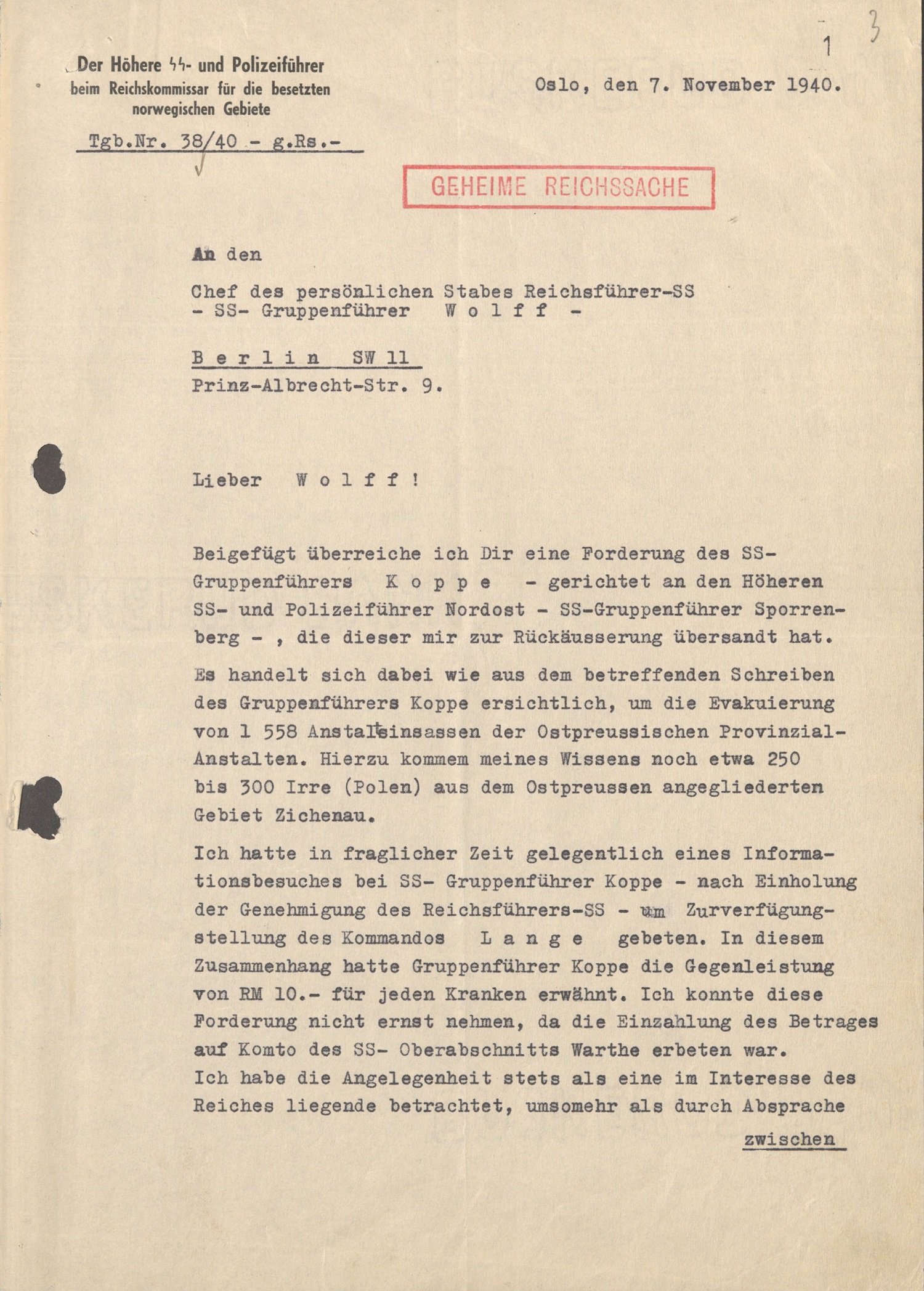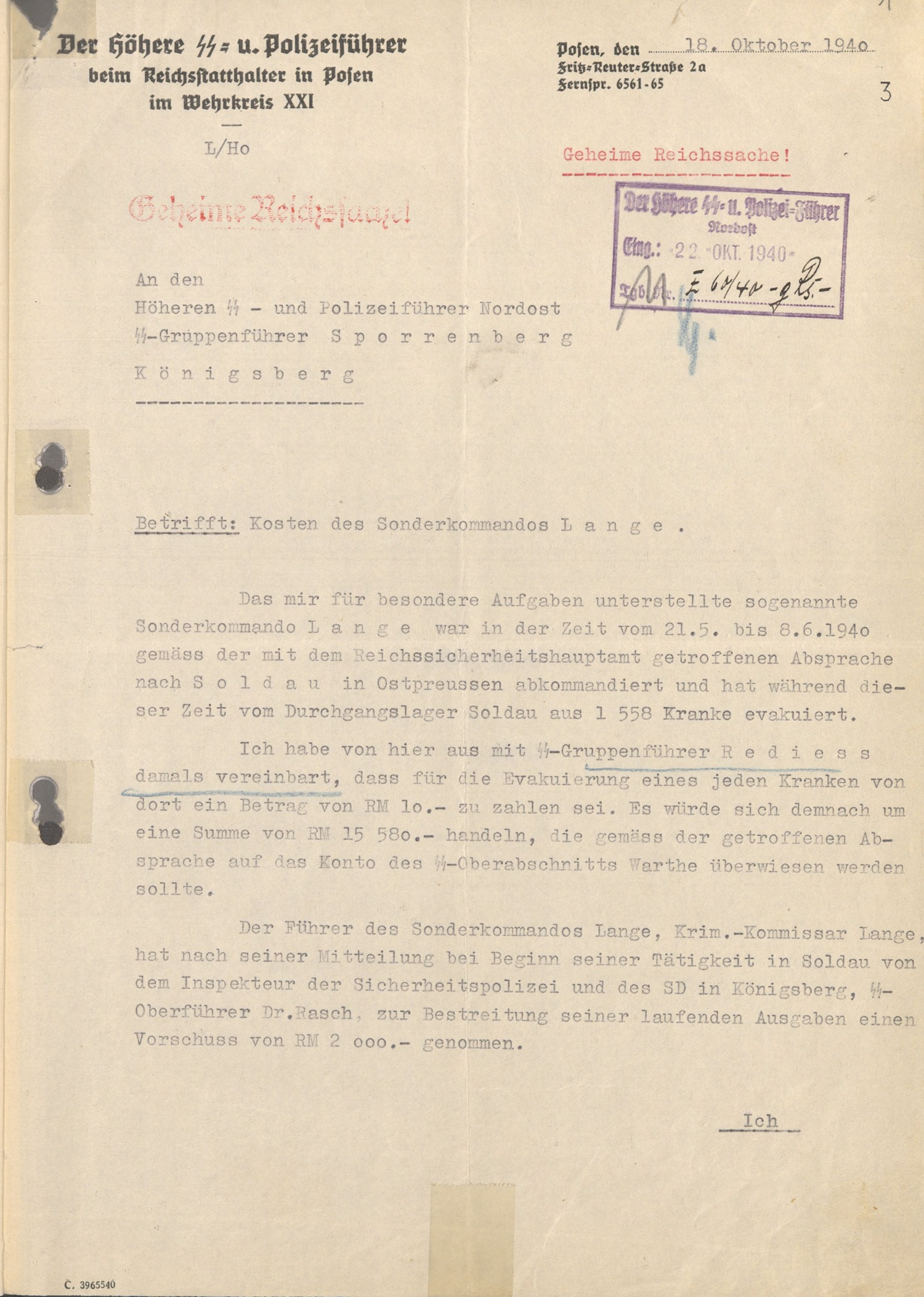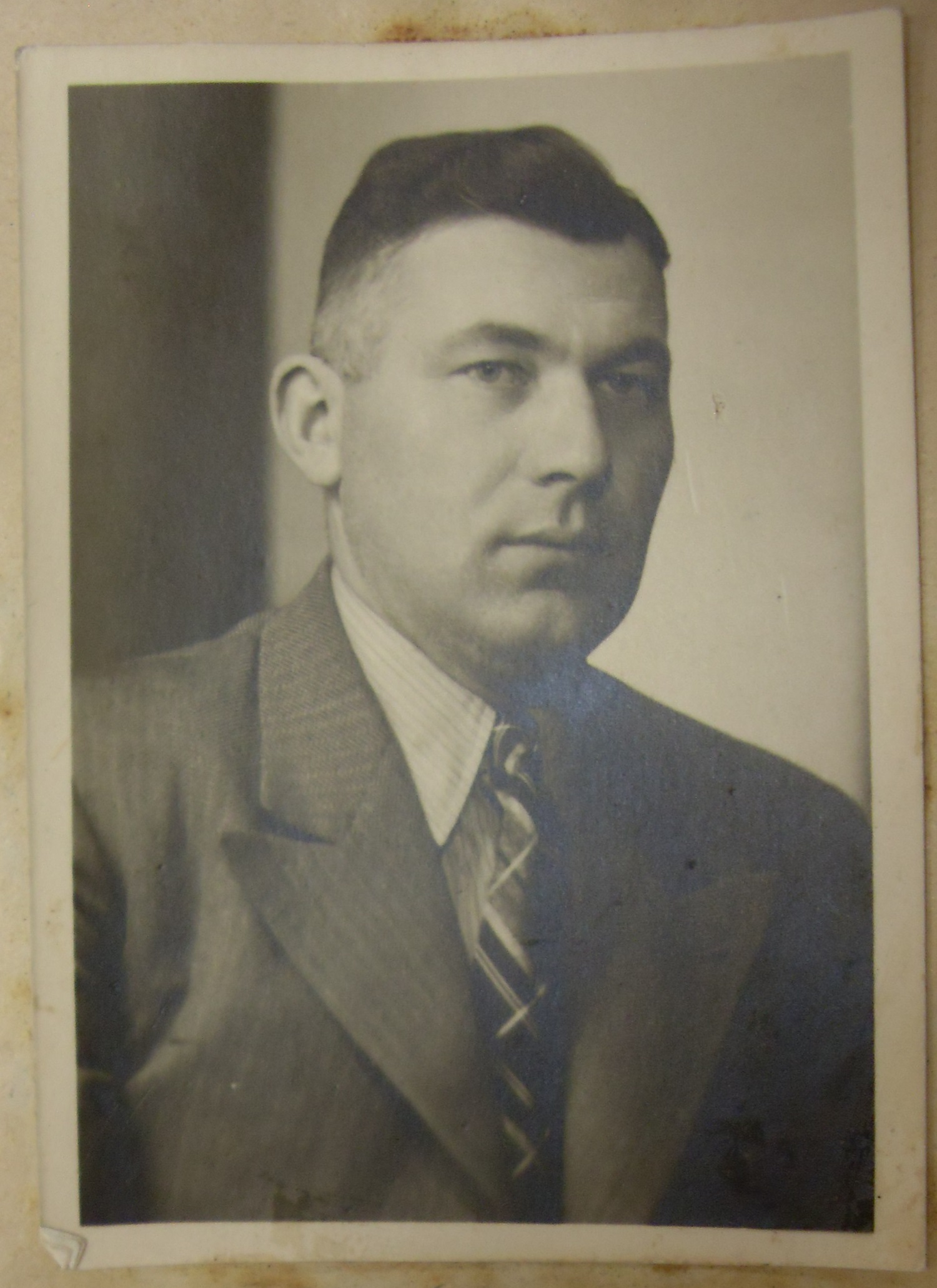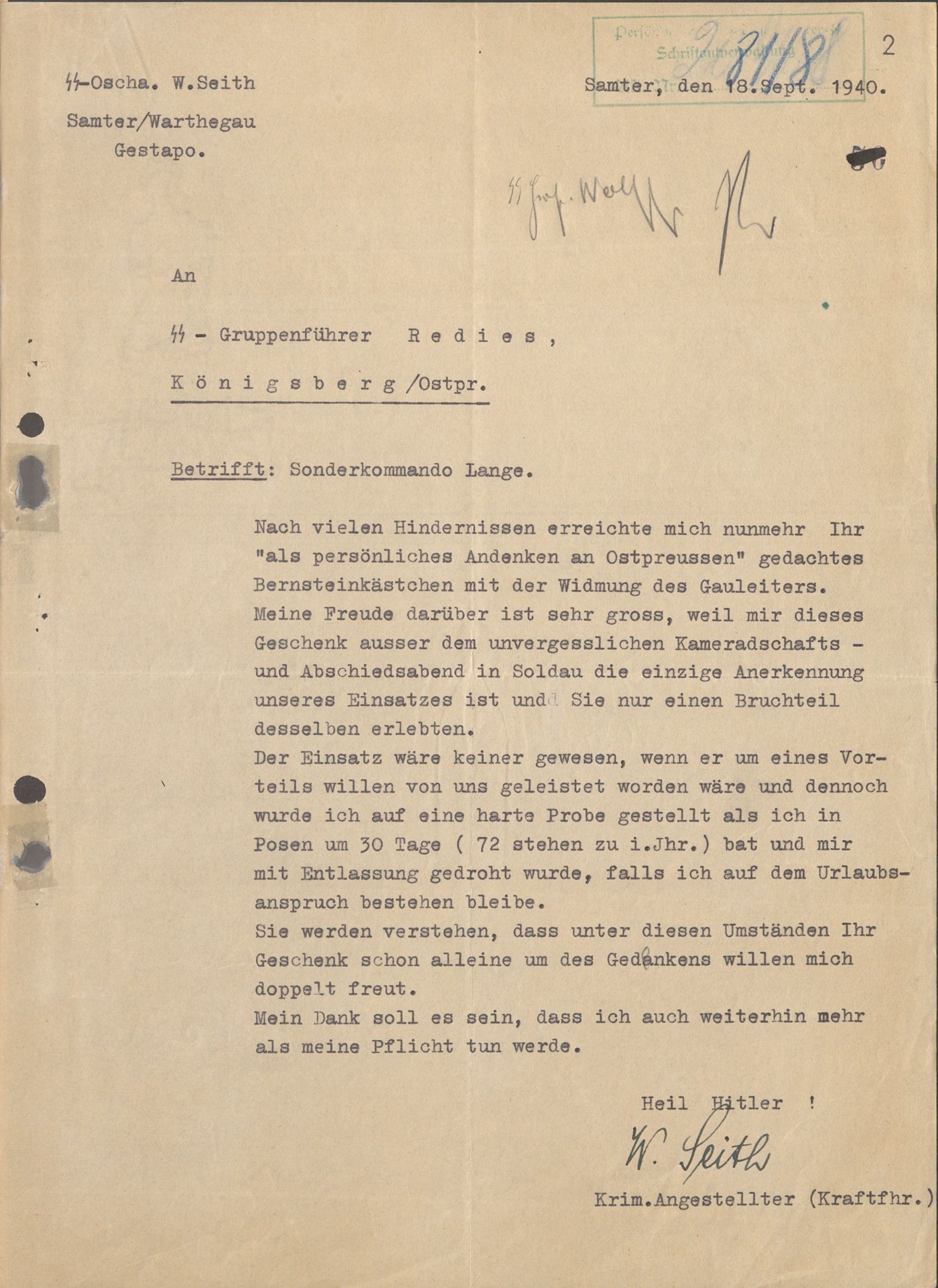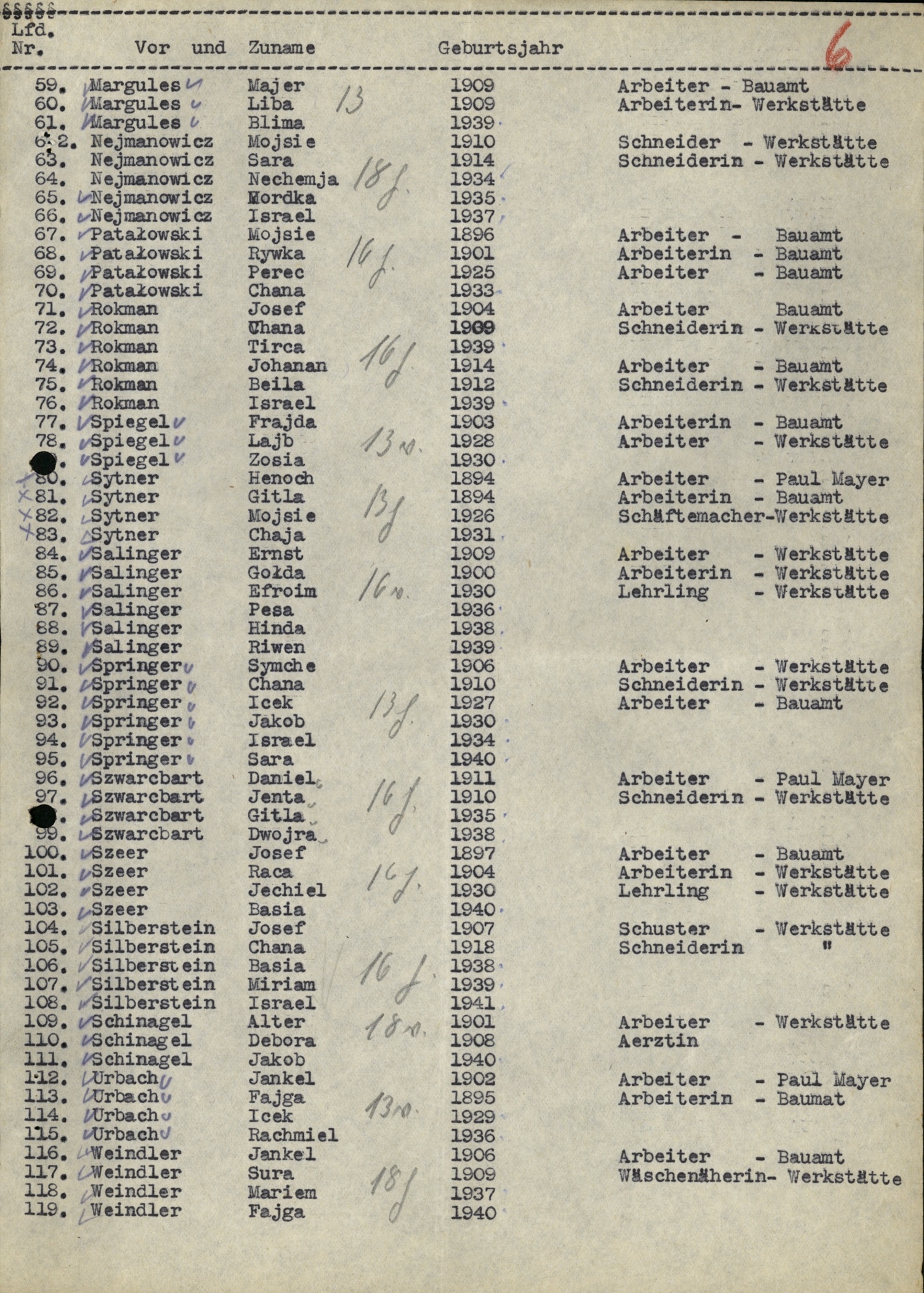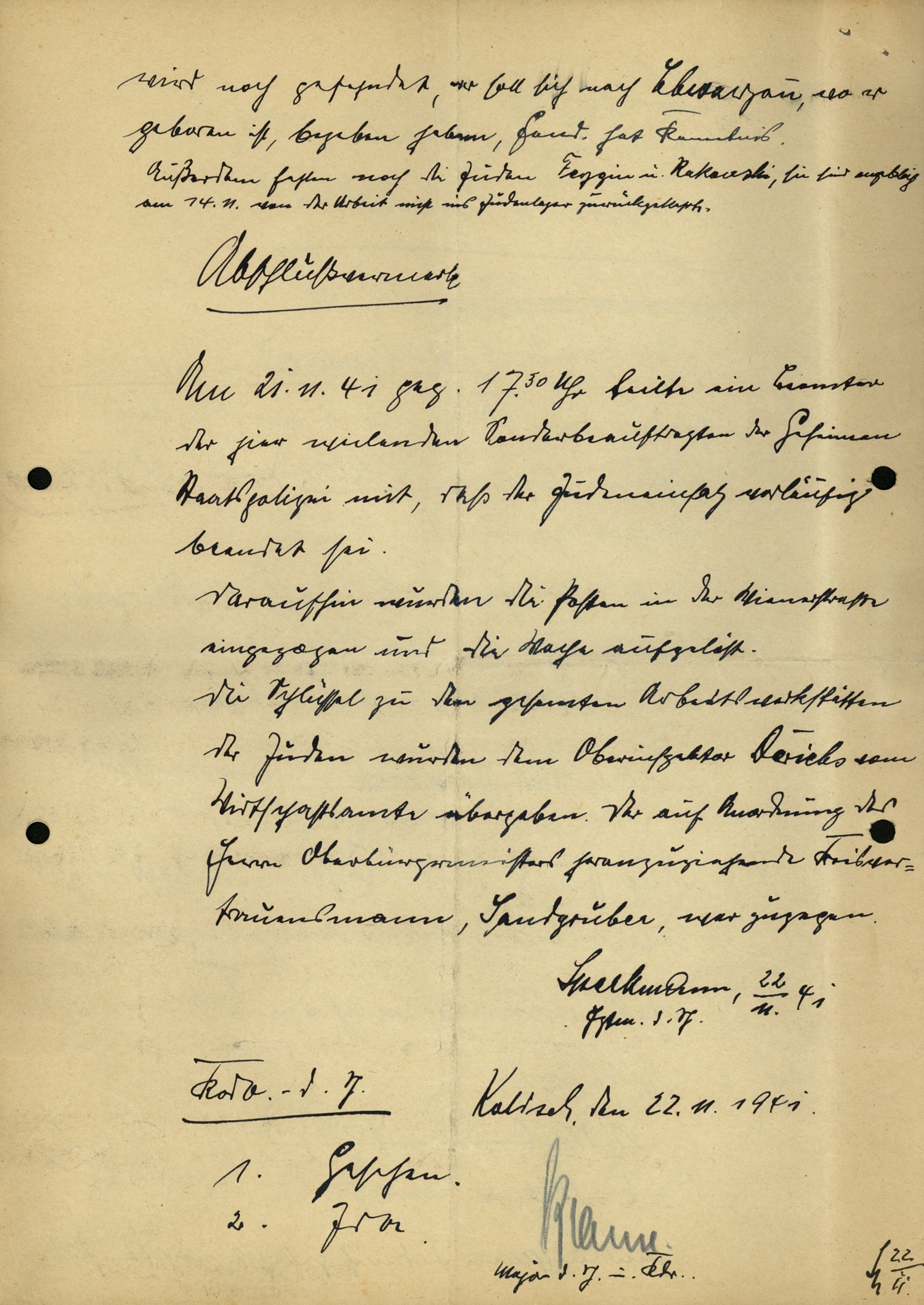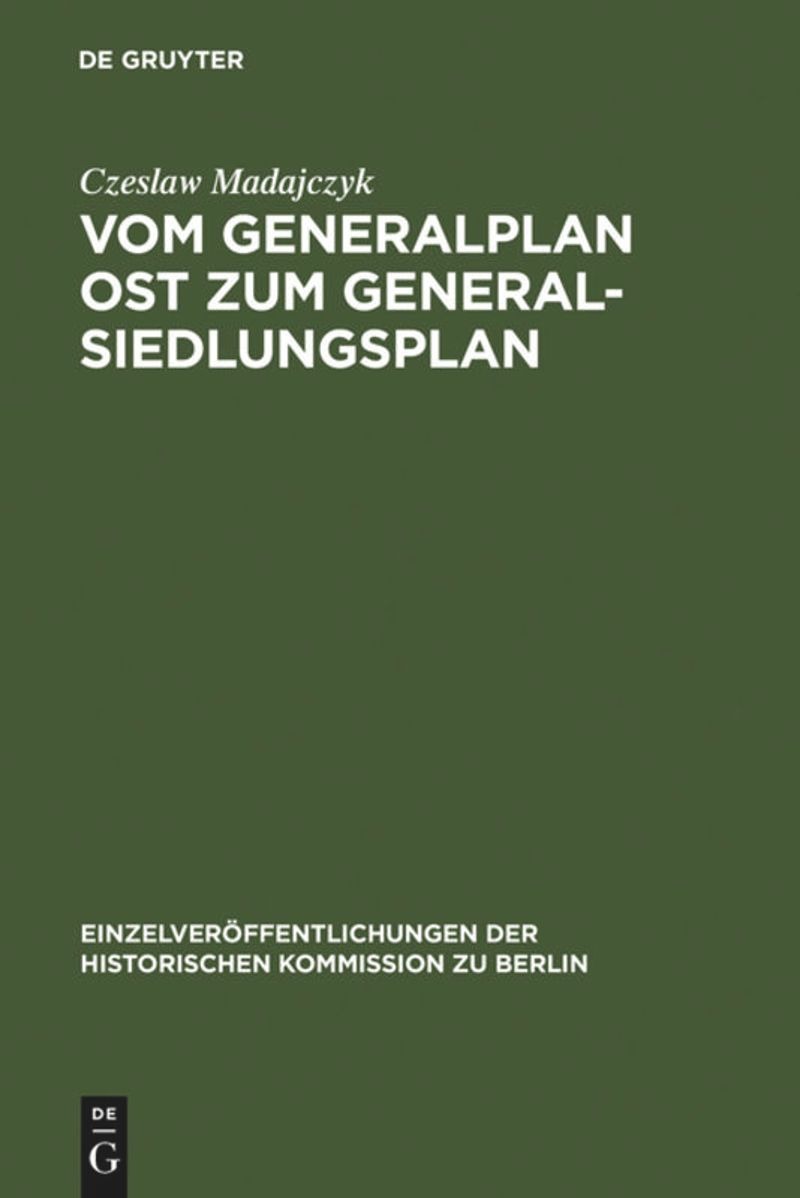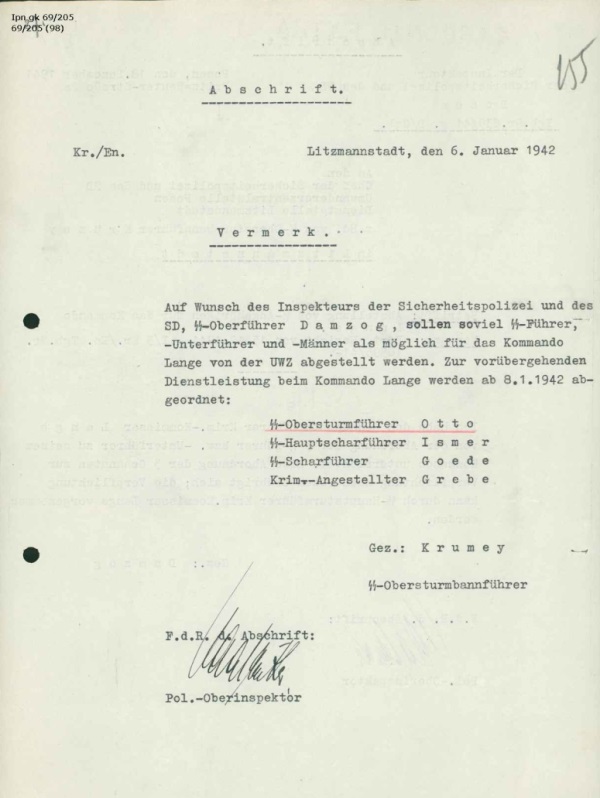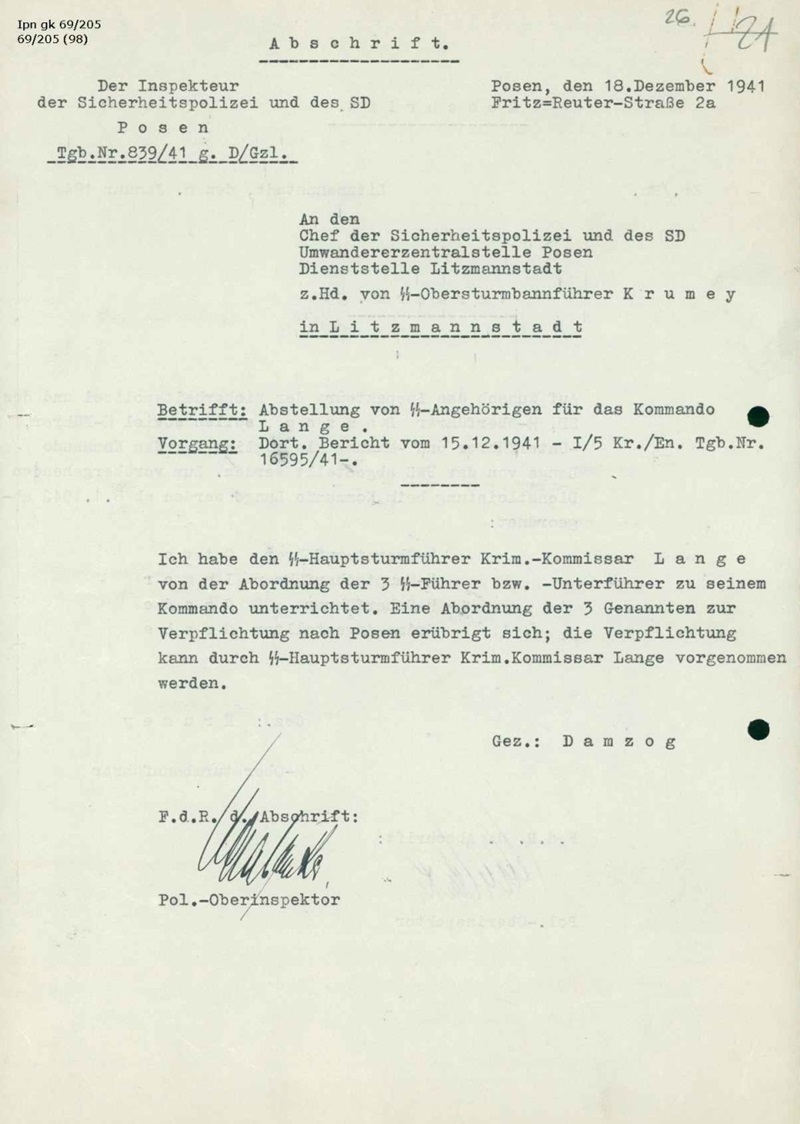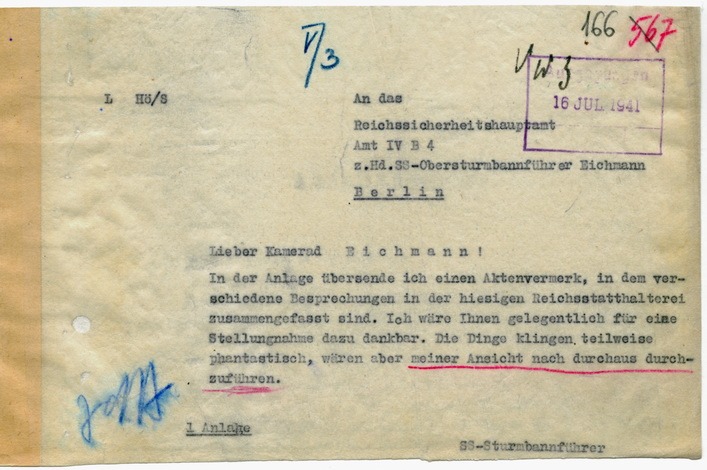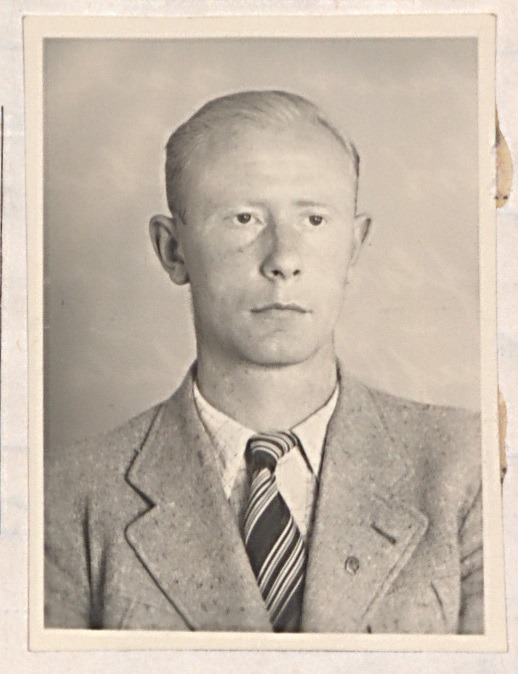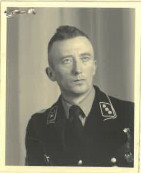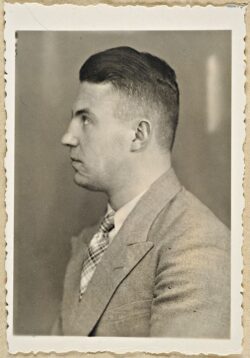Memo dated June 5, 1942, authored by SS-Hauptsturmführer Willy Just of RSHA office II D 3 a (Motor Vehicle Department
Proposal for the Award of the War Merit Cross II Class with Swords by the Gestapo Headquarters in Posen, dated
In this intercepted radio communication dated 4 October 1941, Heinrich Himmler replied to Wilhelm Koppe that "the Sonderkommando is to
In this radio communication dated 3 October 1941, intercepted by British intelligence, the Higher SS and Police Leader Posen, Wilhelm
On 16 August, 1941, the British intelligence intercepted a radio message from the Higher SS and Police Leader Center, Erich
Two days after Bach-Zelewski requested Sonderkommando Lange to come to Baranowicze, on August 18, 1941, the British intelligence intercepted another
On October 22, 1940, the Higher SS and Police Leader of East Prussia, SS-Gruppenführer Wilhelm Rediess, forwarded a letter from
As Wilhelm Rediess declined to pay 10 Reichsmarks for each institutional inmate killed by the Sonderkommando Lange in Soldau and
This document, dated November 7, 1940, is a response to the letter from Wilhelm Koppe to Jakob Sporrenberg. The former
In the letter of 19 October, 1940, the Higher SS and Police Leader of the Warthegau, Wilhelm Koppe, disclosed to
At the end of 1941, the SS-Sonderkommando leader Herbert Lange recruited Plate to the extermination camp Kulmhof. After the departure
The letter, dated September 18, 1940, is addressed from SS-Oberscharführer Wendelin Seith to the Higher SS and Police Leader of
The document describes the fate of 127 individuals identified as "Jews with children under 14 years," deported from Kalisch by
This document of November 22, 1941 was written by Hauptmann Speckmann from the regular police in Kalisch (Kalisz) and describes
On September 2, 1941, Rolf-Heinz Höppner, head of the Central Migration Office in Posen, outlined plans for reorganizing the office
On January 6, 1942, Herman Krumey, the head of the Migration Central Office in Litzmannstadt, recorded the names of three
On December 18, 1941, Ernst Damzog, the Inspector of the Security Police and SD in Posen, wrote to Hermann Krumey,
On July 16, 1941, authorities in the Reichsgau Wartheland convened to deliberate on what was euphemistically termed the "solution of
The following report, dated February 1945, was authored by Heinrich May, detailing his experience and knowledge of the Kulmhof (Chelmno)
In March 1942, Bothmann assumed the role of commander at the Kulmhof extermination camp, succeeding Herbert Lange in this position.
Heinrich May served as the head of the forestry office in Warthbrücken (now Koło) within the Warthegau region, which included
Lange oversaw the infamous Sonderkommando Lange and subsequently assumed command at the Kulmhof extermination camp. In this capacity, he bore
